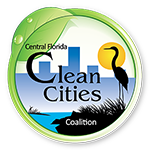By Sherri Shields
April 3, 2015

The University of Central Florida’s Florida Solar Energy Center (FSEC), host of the Central Florida Clean Cities Coalition, was selected to establish an alternative fuel vehicle (AFV) training network for the state of Florida that adapts safety and technical training based on existing curricula for local needs. This project will establish training on electric drive, compressed natural gas (CNG) and propane vehicles for first responders, college instructors, tow-truck operators, and salvage/recycling operators.
The project, funded by the U.S. Department of Energy’s Clean Cities program at $600,000 over a two-year period and starting later this month, will bring together Florida’s Clean Cities Coalitions and their stakeholders to increase the acceptance and deployment of AFVs.
The Central Florida Clean Cities Coalition, in partnership with CareerSource Brevard, has demonstrated both the need and demand for this type of training as they have supported classroom, online, and hands-on instruction for nearly 200 local public safety officers.
“Dealing with alternative fuel vehicles in an emergency situation is new to many first responders. Our training provides assurance that our public safety officers are prepared to deal with alternative fuel vehicles when responding to traffic incidents, protecting both the public and the officers from harm.” says Colleen Kettles, coordinator of the Central Florida Clean Cities Coalition.
According to Battalion Chief and EMS Training Officer Greg Sutton of the Titusville Fire and Emergency Services Department, the first responder training “makes you realize how little you really know about [AFV] vehicles even though we in the fire service have a basic knowledge of them. The technology and mechanics involved are ever changing and I know our crews have a greater confidence in how they will approach these types of vehicles from now on. Making a vehicle “safe” prior to operating in and around it is priority in our field when dealing with vehicle accidents, fires and other emergencies.”
Working with the National Alternative Fuel Training Consortium, the training will be offered statewide.
This project is one of 11 announced by the U.S. Department of Energy earlier this month, aimed at improving potential AFV buyers’ experiences through on-the-road demonstrations of alternative fuel and plug-in electric vehicles, supporting safety-related training, and integrating alternative fuels into emergency planning.
About Central Florida Clean Cities Coalition
The Central Florida Clean Cities Coalition is a non-profit corporation administered by the University of Central Florida’s Florida Solar Energy Center (FSEC) at the Cocoa campus. Sponsored by the US Department of Energy, the Coalition supports sustainable transportation practices, through efforts to advance deployment of alternative fuel technologies, mass transit projects, and fleet optimization measures. The Central Florida Clean Cities Coalition territory encompasses a ten-county area consisting of Brevard, Flagler, Indian River, Lake, Okeechobee, Orange, Osceola, Seminole, St. Lucie and Volusia Counties. For more information about the Central Florida Clean Cities Coalition, visit http://centralfloridacleancities.com/ or contact Colleen Kettles at ckettles@fsec.ucf.edu, 321-638-1004.
About FSEC
The Florida Solar Energy Center (FSEC), a research institute of the University of Central Florida, is the largest and most active state-supported energy research institute in the nation. Current research activities include Advanced Energy Research: alternative transportation fuels, batteries, hydrogen and fuel cells; Buildings Research: energy-efficient buildings; and Solar Energy: solar water and pool heating, photovoltaic (solar electric) systems, testing, and certification. For more information about the center, visit http://www.floridaenergycenter.org or call the FSEC Public Affairs Office at 321-638-1015.
America’s Partnership University
The University of Central Florida, the nation’s second-largest university with nearly 60,000 students, has grown in size, quality, diversity and reputation in its first 50 years. Today, the university offers more than 200 degree programs at its main campus in Orlando and more than a dozen other locations. UCF is an economic engine attracting and supporting industries vital to the region’s future while providing students with real-world experiences that help them succeed after graduation. For more information, visit http://today.ucf.edu.
PR15-04